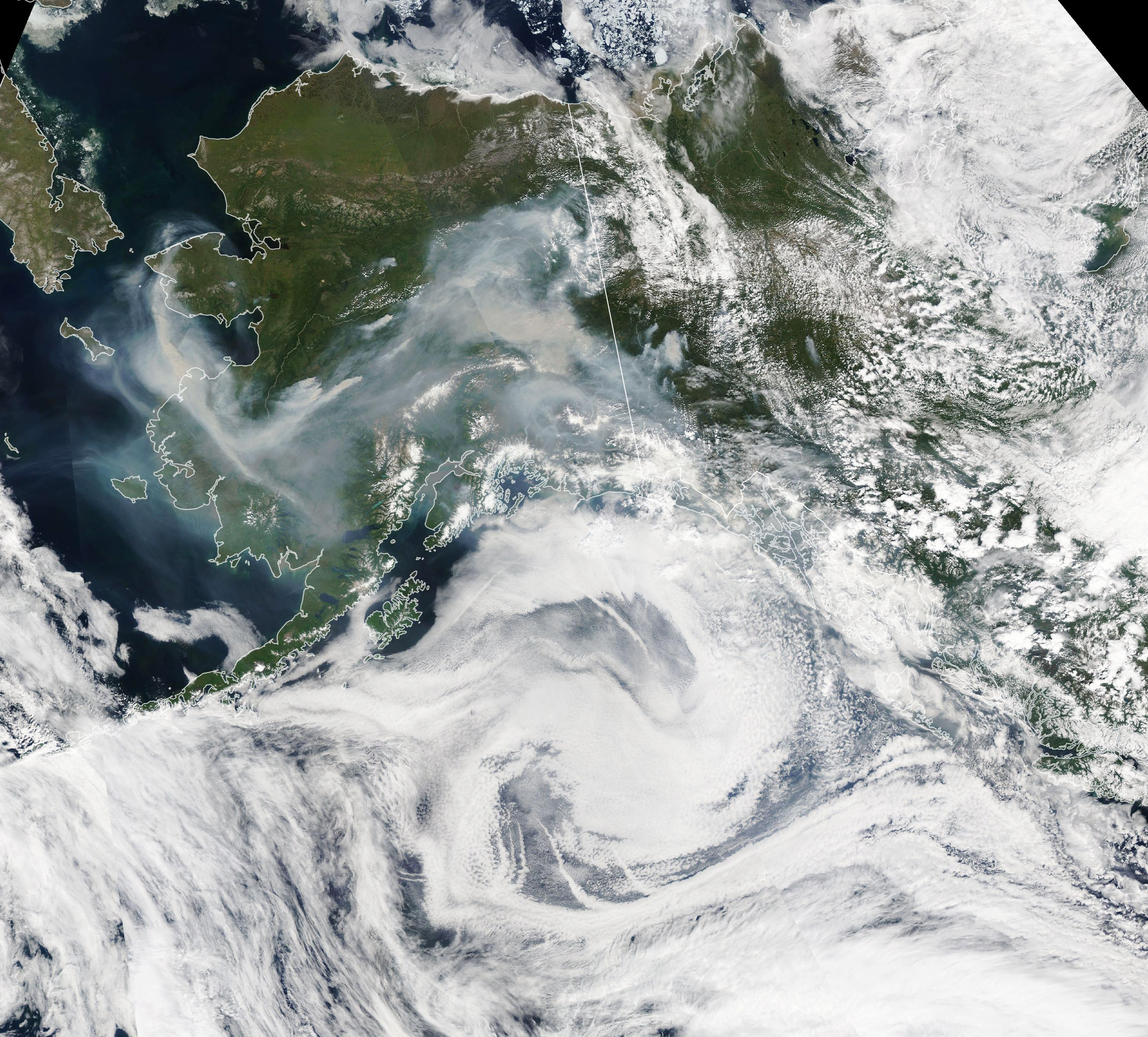4 Reasons A Melting, Burning Alaska Will Power Warming Across The Planet
EDIT
In August wildfire smoke gave Anchorage the worst air quality of any U.S. city. Even in September, a month past the historical end of Alaska’s fire season, we still experienced road and school closures, evacuations, smoke and loss of property. “For Alaska, the length of this year’s fire season was the stand-out part of the story,” says Brettschneider. While the 2.5 million acres that burned in Alaska this year didn’t represent a state record, they still contributed to a record-setting fire season across the circumpolar North, with particularly large fires burning in Siberia. Researchers say the fires are part of a trend toward more frequent and severe Arctic blazes and a steadily lengthening fire season.

Arctic fires spread smoke over Alaska on July 8, 2019. NASA Earth Observatory image by Lauren Dauphin
Alaska’s increasing wildfires matter globally for two entwined reasons. First, the millions of acres that now burn across the North pump carbon into the atmosphere, increasing global heating. In June alone Arctic fires released 50 megatons of carbon dioxide, more than the total annual carbon output of Sweden.
The kind of carbon being released also makes a difference. Arctic fires burn shrubs, tundra and extensive boreal forest. These types of areas contain up to 40 percent of the world’s land-based carbon, comprised of leaves, plants, roots and residue from previous fires, all lying in near-surface soils. But today’s hotter fires are burning this “legacy carbon,” a term researchers recently applied to carbon that has been safely sequestered for centuries. As this happens, a once reliable carbon sink becomes a source of carbon pollution.
Additionally, the increase in fire shortens boreal-forest burn cycles. Fires happen more often, burning down old trees and giving new trees less time to mature between conflagrations. As a result, forest composition has started transitioning away from old trees capable of storing more carbon to younger trees that store less. This shifting carbon balance, along with other factors such as thawing permafrost, may undermine the carbon-reduction goals that nations around the world have set under the Paris climate accord.
EDIT
https://therevelator.org/alaska-warming-impacts-everyone/
